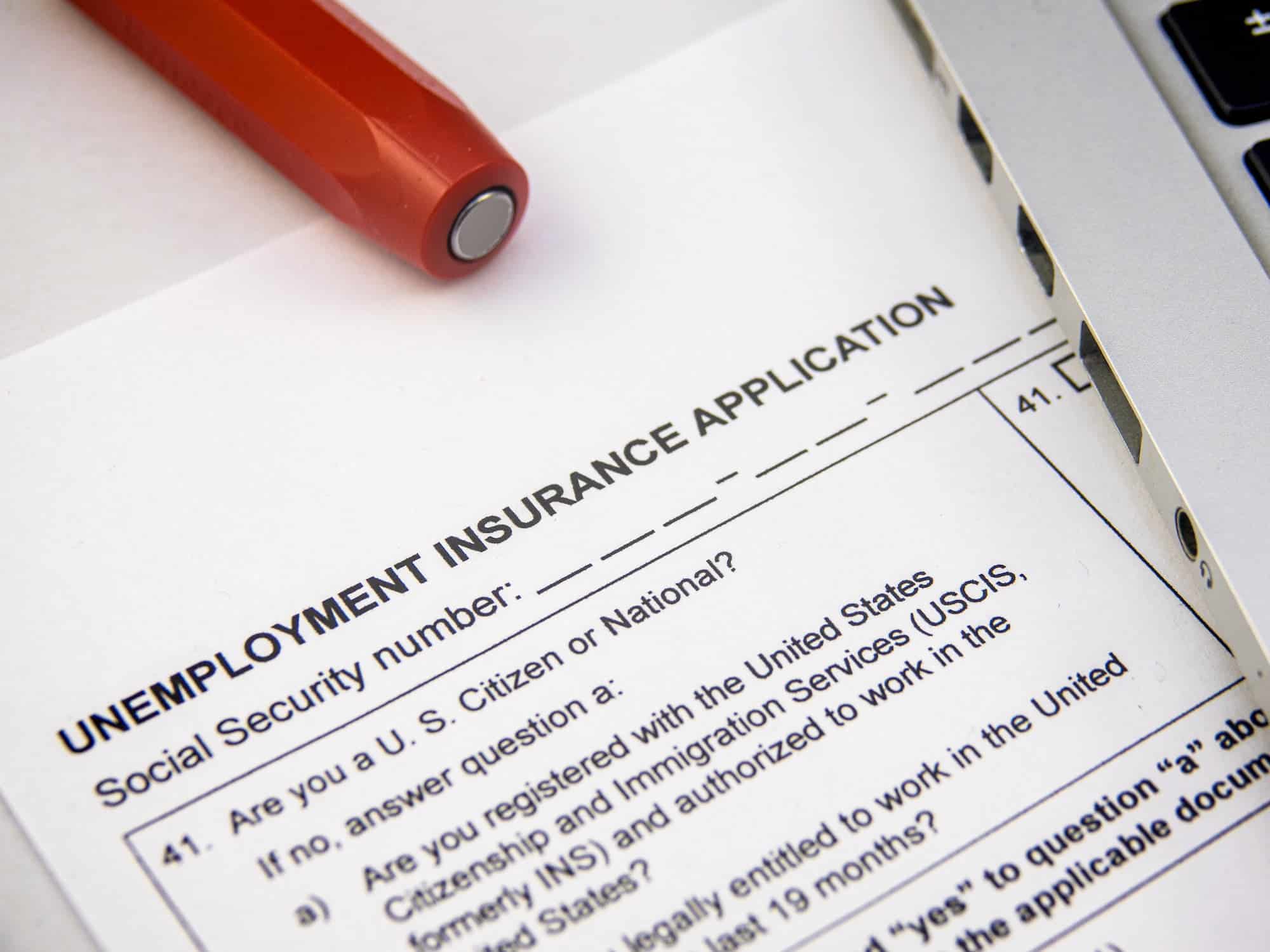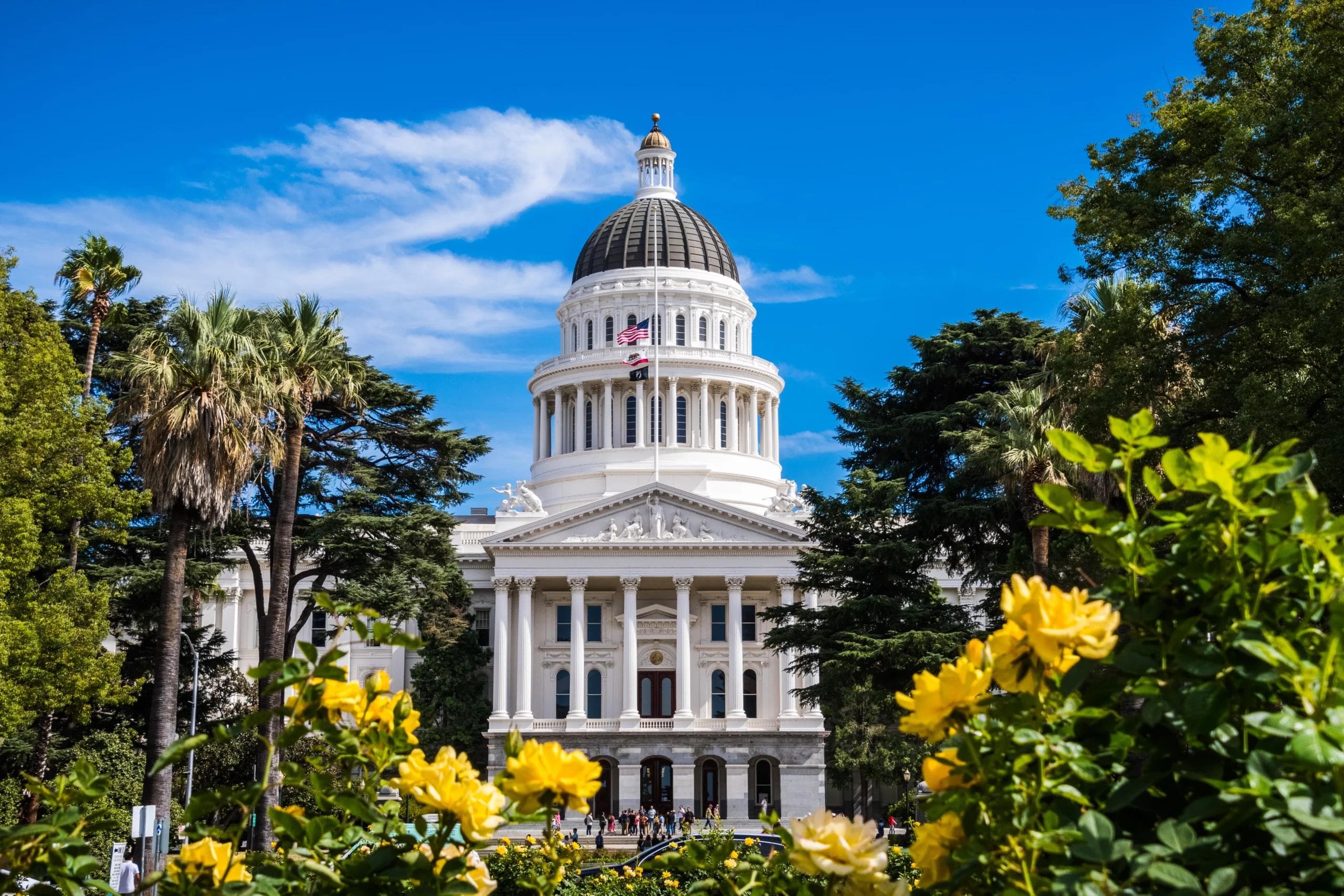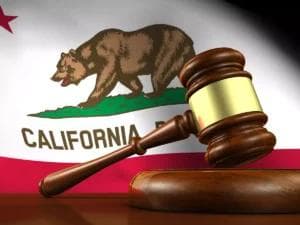
What Happens if You Don’t Pay Your Union Dues in California?
Free ConsultationIf you are a public employee in California—that is, any worker employed by a government agency, including teachers, firefighters, and government officials—you are likely familiar with the union that represents workers like you. Our attorneys can provide the answers and guidance you need to make informed decisions about paying union dues in California.
Union Membership in California – What Are Union Dues?
A union is a lobbying organization made up of workers who negotiate improved working conditions, wages, and benefits for employees. Unions will often exist for specific industries, such as a teachers’ union or the Screen Actors Guild.
If you are part of a union, you are charged membership dues that fund various union activities, such as collective bargaining and political lobbying. There are plenty of benefits for union members: according to Union Plus, union members make 30% more pay than non-members, have a guaranteed pension, and are more likely to have job-related health coverage.
If you are a public worker but are not in a union, you are considered a non-member. Non-members are unable to negotiate the same way union members can, but they may benefit from many union activities, such as collective bargaining for higher wages.
Prior to June 2018, a handful of states (including California) had “fair share” laws in place, which required non-members of a union to cover the cost of union benefits despite being non-members. These costs were called “agency fees” and would cover the cost of collective bargaining, contract administration, and grievance adjustments.
Sometimes, a non-member’s agency fees were on par with the actual cost of union dues for members. A number of people in “fair share” states took issue with the agency fee requirement, including one Mark Janus from Illinois.
What Changed: Janus vs. AFSCME
Janus, a child support specialist, paid thousands of dollars in union fees over the course of his employment to the AFSCME, a government workers’ labor union. Janus never asked to be represented by the union and opposed many of their policy stances, yet was required to pay agency fees to the organization as a condition of his employment. He filed a lawsuit against the union, which made it all the way to the Supreme Court.
On June 27, 2018, the U.S. Supreme Court ruled in a 5-4 decision that labor unions can no longer require non-member public employees to pay agency fees, thus overruling the “fair share” laws in states all over the country. In other words, if you’re a public sector employee, you can refuse to pay union dues if you don’t want to be represented by the union.
In the ruling, the Court noted that unions are inherently political organizations, and that a “‘significant impingement on First Amendment rights’ occurs when public employees are required to provide financial support for a union that ‘takes many positions during collective bargaining that have powerful political and civic consequences.’” In other words, requiring a non-member to pay a political organization that they may disagree with was a violation of their First Amendment right to free speech.
The Aftermath of Janus: California SB 866
The Janus ruling frees more than 5 million public sector employees from supporting unions they do not want to take part in. However, many of these employees don’t know they have this freedom.
On the day the Janus decision passed, California Governor Jerry Brown signed SB 866 into law, which prohibits public employers from communicating with their employees about the cost of union membership.
California law already prohibits employers from “deterring or discouraging” employees from joining an employee organization. SB 866 expands this idea by barring public employers from issuing mass communications to employees regarding their right to join (or not to join) a union without first “meeting and conferring with the representative concerning the content of the communication.” In simple terms, if an employer wants to talk to employees about joining a union, the employer has to come to an agreement with the union itself about what to say.
If an employee asks their employer to leave the union, the employer cannot honor their request directly—Senate Bill 866 requires the employer to refer the employee to the union itself for any changes in membership.
Additionally, existing California law gives union representatives mandatory access to “new employee orientations,” where an employee learns of their rights and responsibilities in their new position. SB 866 makes these orientations between union representatives and new employees confidential.
SB 866 gives unions great control over what is shared with employees about the cost of union membership. The law (and others like it) may keep many of California’s public employees in the dark about the U.S. Supreme Court’s Janus ruling.
California Public Workers: You Have Rights
The fight over the cost of union membership may continue for many years. In the meantime, we are committed to making sure you know your rights as a public employee in California.
At PARRIS Law Firm, our attorneys have over 37 years of experience fighting relentlessly for those whose rights have been violated. Contact PARRIS today for a free case consultation.
Here are more articles related to the same topic

When a car accident occurs, the immediate concern is physical recovery. Yet, often lurking in the aftermath is the daunting reality of unemployment due to injuries sustained. For many, this is a predicament that compounds the physical pain with financial stress.
If you’re reading this, you or someone you know might be grappling with this exact situation in California. We understand the strain you’re under, and we’re here to help.
Understanding Unemployment Benefits
Unemployment benefits serve as a financial safety net for individuals who find themselves out of work through no fault of their own. These benefits are temporary wage replacements provided by the state to support people while they search for new employment.
To be eligible for unemployment benefits, you must meet certain criteria. Generally, you must be unemployed due to circumstances beyond your control, such as layoffs, and you must be actively seeking employment. However, what if you’re unable to work due to injuries from a car accident?
In California, the Employment Development Department (EDD) administers unemployment benefits. According to EDD, to qualify for these benefits, you must be physically able to work, available for work, and ready to accept work. But the law does provide some flexibility for those who are temporarily unable to work due to a physical condition, including injuries from a car accident.
If you’ve been injured in a car accident and can’t work, it’s crucial to understand how this situation interacts with your eligibility for unemployment benefits. If your injuries prevent you from performing your regular job duties but you are willing to accept suitable work considering your physical condition, you may still be eligible for benefits. For example, if you previously worked in construction but are now limited to desk jobs due to your accident, you could potentially qualify.
However, navigating these waters can be complex. California’s laws and regulations regarding unemployment benefits are intricate, and understanding the nuances related to your specific situation can be challenging. The state looks at factors like your medical condition, your previous job, your current ability to work, and the availability of suitable work in evaluating your eligibility.
Receiving unemployment benefits after a car accident involves more than just understanding the law. You’ll need to interact with insurance companies, possibly negotiate with your former employer, and navigate the EDD’s bureaucratic processes.
The Process of Claiming Unemployment Benefits After an Auto Accident
Step 1: Gather Your Information
Before you begin the application process, it’s essential to gather all necessary information. This includes your Social Security number, driver’s license number, details about your employment history, and medical documents pertaining to your car accident. Ensuring you have all relevant information at hand will streamline your application process.
Step 2: File Your Claim
In California, you can file your unemployment claim online, by phone, by mail, or by fax. The fastest way is usually online through the EDD’s website. Be prepared to provide details about your last employer, your earnings, and the reason for your unemployment. Remember to mention that you are unable to work due to injuries sustained in a car accident.
Step 3: Register with CalJobs
Registering with CalJobs, California’s online job search portal, is usually a requirement. However, if you’re temporarily unable to work due to your injuries, you may be exempt from this requirement. Make sure to clarify your situation when filing your claim.
Step 4: Wait for Your Notice of Determination
After you’ve filed your claim, the EDD will review your application and send you a Notice of Determination. This document will state whether you are eligible for benefits and, if so, how much you will receive.
During this process, it’s vital to be aware of potential challenges you might face. One significant hurdle is meeting the EDD’s criteria for being “able and available” to work. As mentioned earlier, if you’re willing to accept suitable work considering your physical condition, you may still qualify for benefits. However, proving this can be a complex task, requiring careful documentation of your injuries, your job search efforts, and any job offers you may have received.
Another challenge is dealing with the EDD’s bureaucratic processes. Mistakes on your application, delays in receiving your Notice of Determination, or disputes over your eligibility can all complicate your claim. It’s crucial to stay organized, keep copies of all documents, and follow up regularly on your claim’s status.
Legal hurdles can also arise during this process. If your former employer disputes your claim or if you face potential discrimination due to your injuries, you may need to seek legal advice.
How a Personal Injury Claim Can Impact Your Unemployment Benefits
When you’re out of work because of an auto accident, you may consider two distinct paths for financial support: unemployment benefits and a personal injury claim. Unemployment benefits exist to aid those who are jobless through no fault of their own and are actively seeking work. A personal injury claim is a legal dispute that occurs when one person suffers harm from an accident or injury, and someone else might be legally responsible for that harm.
So, how does filing a personal injury claim affect your eligibility for unemployment benefits?
Let’s start with a fundamental point: Compensation from a personal injury claim can impact your eligibility for unemployment benefits. The devil, as always, is in the details. If your personal injury compensation is classified as reimbursement for lost wages, it might be seen as income. This could, in theory, affect your unemployment claim. However, if the payment is for medical bills or pain and suffering, it is typically not considered income for unemployment benefit purposes.
Now, let’s add another layer of complexity: timing. If you receive a lump sum from your injury claim while you are also collecting unemployment benefits, you may need to report this to EDD. Depending on the specifics of your case and how the settlement is structured, this could influence your benefit amount.
In essence, the interplay between a personal injury claim and unemployment benefits is not a simple one-size-fits-all situation. Understanding these nuances requires a deep dive into the specifics of your case and a comprehensive understanding of California law.
And this is where we come in. As a personal injury law firm, we at PARRIS have the necessary expertise to guide you through this complex intersection. We can help navigate the intricacies of your case, ensuring you understand how a personal injury claim could impact your unemployment benefits, and vice versa.
Potential Hurdles and Obstacles
The road to securing unemployment benefits after an auto accident is not always smooth. It’s more akin to a Californian freeway during rush hour—expect delays, detours, and occasional gridlocks. But with careful navigation, you can reach your destination.
Legal Hurdles
The law is vast and complex, filled with nuances and fine print that can trip up even the most careful reader. When it comes to unemployment benefits, the legal landscape can be particularly challenging.
One such challenge is meeting EDD’s criteria for eligibility. To qualify, you must be “able and available” to work. However, if you’re recovering from a car accident, this requirement might seem like a significant roadblock. Fear not. You may still qualify if you’re willing to accept suitable work considering your physical condition. Proving this willingness, however, requires careful documentation and potentially legal advice.
Employer-Related Hurdles
Then some obstacles could arise from your former employer. Imagine this scenario: You’ve filed for unemployment benefits, but your former employer disputes your claim, arguing that you left voluntarily or were fired for misconduct. This dispute can throw a wrench in your unemployment benefits claim.
Another potential hurdle is if your employer inaccurately reported your earnings to the EDD, leading to a lower calculated benefit amount. Or what if your employer classifies you as an independent contractor instead of an employee, potentially disqualifying you from benefits entirely?
These challenges can feel like running into a brick wall, but remember, there are ways around them. In each case, it’s crucial to have solid evidence on your side—documentation of your employment, earnings, and the circumstances of your job loss.
When the Road Gets Bumpy, We Smooth It Out
We understand that the interplay between unemployment benefits and personal injury claims can be as complex as the Los Angeles freeway system. That’s why we’re here to guide you through every twist and turn, ensuring you don’t miss an exit or take a wrong turn.
So, if you find yourself unemployed due to a car accident, don’t navigate this road alone. There’s no need for you to become an overnight guru in personal injury law or the nuances of the EDD. That’s our job. Your job is to focus on your recovery.
Contact PARRIS Law Firm today. Let us handle the legal complexities so you can concentrate on what matters most—your health and well-being.

As the New Year begins, workers in Santa Clarita will wake up to a small but significant change: an increase in the minimum wage to $16 per hour. This adjustment, as reported by the Department of Industrial Relations (DIR), aligns Santa Clarita with the statewide minimum wage for California, which also increased as of January 1, 2024, to $16 per hour.
While some cities within the Golden State offer higher wages, Santa Clarita sticks to the state’s rate. For workers in Santa Clarita, your new minimum wage will be $16 per hour in 2024. However, it falls slightly short when compared to LA County’s minimum wage of $16.90.
Santa Clarita vs. LA County Minimum Wage
Despite being geographically nestled within Los Angeles County, Santa Clarita has aligned with the state’s minimum wage. In contrast, unincorporated areas of LA County have set their minimum wage at $16.90 per hour as of July 1, 2023.
The difference, albeit minor, is due to a critical distinction in governing laws. LA County has a county ordinance that allows it to set its own minimum wage for unincorporated areas, giving it the liberty to incrementally increase the wage each year. Santa Clarita, being an incorporated city, has opted to follow the state’s wage guidelines. This means despite its location within LA County, Santa Clarita isn’t subject to the county’s wage ordinance.
What does this mean for workers? If you’re employed in Santa Clarita proper, the city’s adherence to the state minimum wage applies to you. However, if your workplace falls within the unincorporated areas of LA County, you’re entitled to the slightly higher county minimum wage. Understanding these distinctions is vital in ensuring you’re receiving the correct compensation for your hard work.
Understanding Employee Exemptions and Overtime Laws
An exempt employee is one who is exempt from the state’s minimum wage and overtime laws. They’re typically salaried workers in executive, administrative, or professional roles. Nonexempt (or hourly) employees are paid at least the state minimum wage and are entitled to overtime pay for hours worked beyond a 40-hour workweek, and in California, hours worked beyond eight in a single workday.
California law requires an exempt employee must earn a minimum salary equivalent to twice the state minimum wage for full-time employment. Given the new minimum wage of $16 per hour, this means that an exempt employee must earn at least $66,560 annually (that’s $16 x 2 x 40 hours per week x 52 weeks). If you earn less than this, your employer is supposed to classify you as nonexempt.
What does this mean for workers? If you’re an exempt employee earning less than $66,560 annually, your employer is in violation of California law. You should be classified as nonexempt and entitled to the protections that status offers, including overtime pay.
In California, nonexempt employees are entitled to 1.5 times their regular rate of pay for all hours worked beyond eight in a day or 40 in a week, and for the first 8 hours worked on the seventh consecutive day of work in a workweek. Double time is owed for all hours worked beyond 12 in a day and beyond eight on the seventh consecutive day of work in a workweek. So, if you’re working more than these hours and not receiving overtime pay, your rights are being infringed upon.
Making Ends Meet: The Reality of a $16 Hourly Wage
The Santa Clarita Minimum wage of $16 sounds like a step forward. But what does it really mean for your annual earnings and standard of living?
Here’s the math: If you’re working full time, meaning 40 hours a week for 52 weeks a year (no vacations, remember), you’ll earn $33,280 annually before taxes. On paper, that might seem like a fair sum. But let’s apply some context.
California has one of the highest costs of living in the United States. The state’s housing costs are sky high, with the median home price over $800,000. Rent isn’t much better, with the average apartment going for over $2000 a month. Then there’s food, transportation, healthcare, and other essentials, which all tend to be more expensive than the national average.
So, where does a $33,280 annual income place you? Sadly, below the poverty line. According to the California Poverty Measure, a more comprehensive tool than the federal poverty line, a family of four in LA County needs an income of just under $40,000 just to cover basic expenses. And that’s assuming no major unexpected costs come up, like a car repair or medical bill.
The reality is stark: A $16 hourly wage can leave you scrambling to make ends meet. You might find yourself choosing between paying the rent and buying groceries, or skipping a doctor’s appointment to save on co-pays. It’s a precarious balancing act, and one missed step can lead to financial disaster.
This isn’t about painting a grim picture. It’s about facing the facts and fighting for fair compensation. If you’re working full time, you deserve a wage that not only keeps you above the poverty line but allows for a decent standard of living. Anything less isn’t progress—it’s perpetuating a problem.
Your Rights and Recourses
California law provides robust protections for workers, and if your employer isn’t paying you appropriately, you have options. For starters, you can file a wage claim with the California Labor Commissioner’s Office. This office serves as an advocate for workers and has the power to investigate employers and enforce labor laws. If your claim is validated, they can recover your unpaid wages plus penalties from your employer.
Alternatively, you can take legal action. California law allows workers to sue their employers for unpaid wages, and if you win, you could potentially recover not only your unpaid wages but also interest and attorney’s fees. It’s not a step to be taken lightly, but it’s there if you need it.
It’s important to remember that retaliation is also illegal. Your employer cannot fire, demote, or otherwise punish you for asserting your rights. This includes reducing your hours, changing your shift, or moving you to a less desirable location. If they do those things, that’s another violation you can add to your claim or lawsuit.
Knowing your rights is the first step to asserting them. The second step is not being afraid to seek help. Whether it’s consulting with a lawyer, reaching out to a union representative, or simply talking to a trusted mentor, don’t hesitate to lean on others for support.
If your employer isn’t paying you the minimum wage or overtime you’re entitled to, you have the right—and the means—to demand fairness. Stand up for your rights. Seek help if you need it.
Your Wage, Your Rights
The Santa Clarita minimum wage increase to $16 an hour in 2024 is a step in the right direction but it’s not quite enough for a comfortable life in California. If you’re an exempt employee earning less than $66,560 annually, you should be classified as nonexempt and entitled to overtime pay. Working more than eight hours a day or 40 hours a week without receiving overtime pay is not just unfair, it’s illegal.
If you find your paycheck falling short of these standards, it’s time to take action. You have rights. You deserve fair pay for your hard work. And if your employer isn’t playing by the rules, they need to be held accountable.
That’s where PARRIS Law Firm steps in. Our team of seasoned employment law attorneys is ready to help you fight for what you’re owed. We can guide you through the process of filing a wage claim or even taking your employer to court if necessary.
So, if you’re tired of struggling to make ends meet on a wage that’s less than you deserve, reach out. Contact PARRIS Law Firm for a free consultation today. Your rights are worth fighting for, and we’re ready to help you win the battle.

With another year comes another set of laws passed by the California legislature. In 2022, Governor Gavin Newsom signed hundreds of new bills into law, many of which will go into effect sometime in 2023.
With so many bills to follow, it may be difficult to know how certain laws might affect you. We’ve done the leg work and compiled a list of new laws in California and how they will impact your everyday life.
Employment Law
Equal Pay: In an effort to address the issue of equal pay, Senate Bill 1162 requires all employers in California with at least 15 workers to include the hourly rate or salary range in every job listing. It also strengthens requirements that employers submit detailed pay data reports that include the number of employees by race, ethnicity and sex in specified job categories.
Minimum Wage: The minimum wage in California will expand to nearly all workers in 2023, including those at small businesses. The hourly increase will apply to employees in businesses with 25 or fewer workers, which is the final step in a 7-year process to hike the minimum pay for hourly workers. A 2016 law established a state minimum wage increase by $1 per year until 2022 up to $15/hour. In 2023, the minimum wage will increase by another 50 cents to $15.50 due to inflation.
Fast Food Workers: If you are a fast food worker in California, Assembly Bill 257 creates what advocates are calling a pseudo union. Called the FAST Recovery Act, AB 257, establishes a 10-member Fast Food Council within the Department of Industrial Relations that will set minimum standards for wages, working hours, and other conditions for fast food employees.
Disability and Paid Family Leave: For those on disability and paid family leave, Senate Bill 951 raises the cap on payments for people making under $57,000 per year. People earning below this threshold will be paid 90% of their regular wages (higher than the current 70%) beginning in 2025.
Workers’ Compensation: A contractor that doesn’t carry worker’s compensation insurance could lose their license as a result of Senate Bill 216. Worker’s compensation was already required, but starting July 1, 2023 this new penalty will be added.
Traffic Laws
Speeding: Speed limits on roads and state highways could be lowered by local governments as a result of Assembly Bill 43. The law is meant to address rising traffic deaths. Current state law mandates the “85th percentile rule,” which sets the speed limit on any road as the speed at which 85% of cars on that road travel. AB 43 allows cities and counties to bypass this rule and lower speed limits through “safety corridors” in roads throughout the state.
Street Racing: With street racing and street takeovers becoming more of a problem, the California legislature attempted to address the problem with the passage of two bills. Assembly Bill 2000 makes it a crime to race or exhibit a vehicle’s speed in an “offstreet parking facility.” Racing is already illegal on roads and highways. A different bill, AB 74, increases the punishment for street racing up to suspending the perpetrator’s license for up to 6 months, and restricting their ability to drive for their employer.
Catalytic Converters: As thefts of catalytic converters have increased, lawmakers set their sights this year on the illegal market. Senate Bill 1087 prohibits auto parts recyclers from buying a used catalytic converter from anyone other than specified sellers. These sellers include vehicle dismantlers, auto repair dealers, or people with written proof of ownership of the converter. This law is the first in a slew of laws addressing the uptick in catalytic converter thefts throughout the state.
Jaywalking: Crossing the street outside a crosswalk will no longer be against the law in California in 2023 due to AB 2147. The law prohibits police from citing anyone from jaywalking unless they are at risk of being hit by traffic. Violations would apply to someone walking aimlessly in traffic rather than someone just trying to cross the street.
The Legal System
Remote Court Appearances: The coronavirus pandemic spawned a new age of video conferencing. One of the biggest changes occurred in the court system, which for the first time opened video conferencing for important proceedings that otherwise were conducted in a courtroom. Senate Bill 241 allows court conferences, hearings, or proceedings to continue taking place remotely through July 1, 2023.
Rap Lyrics at Trial: Prosecutors who want to use rap lyrics as evidence to convict someone of a crime must hold a hearing before trial, away from the jury, to prove that the lyrics are relevant to the case. Assembly Bill 2799 was authored in light of revelations from the book Rap on Trial, which discusses racial biases related to rap lyrics used in court proceedings.
Criminal Justice
Record Relief: Excluding violent criminals and sex offenders, many of those convicted of a misdemeanor or felony in California more than five years ago can have their criminal records sealed under SB 731. The law allows criminal records to be sealed only if the person completed their terms of punishment and have not committed another crime since, these sealed records cannot be used to deny the former offender employment, but they must be disclosed to school districts. This record relief does not extend to most violent crimes, or any felony requiring the person to register as a sex offender.
Mental Health Crisis
People Experiencing Homelessness: A new program under SB 1338 creates the CARE Court program as a way to compel adults living on the streets with serious mental illness into state-mandated facilities. Family members, law enforcement, and health care professionals can now petition a court to create a care plan for people that meet specific criteria, including a diagnosis of schizophrenia or another psychotic disorder. Seven California counties—Glenn, Orange, Riverside, San Diego, Stanislaus, Tuolumne, and San Francisco—must comply by October 1, 2023, while the rest of the state has until December 1, 2024.
Digital Privacy
California Privacy Rights Act: In 2020, California citizens voted to pass Prop 24, better known as the California Privacy Rights Act (CPRA). Though some provisions of the law began in 2021, most of the law takes full effect on January 1, 2023.
Under previous law (the California Consumer Privacy Act of 2018), consumers were given the following rights:
- The right to know what personal info was collected by a business, as well as from whom, why, and where it was sold
- The right to delete this personal info
- The right to opt out of sale of personal info
- The right to bring a cause of action against a business for any data breaches
The CPRA adds to these rights by giving consumers the right to correct any inaccurate personal information, and the right to limit a business’s disclosure of sensitive personal information, including their personal identification numbers, financial information, location, race, religion, mail or text messages, or genetic data.
Medical Malpractice
Recovery Amounts: Medical malpractice cases in California will receive long-awaited changes on Jan 1, 2023 due to Assembly Bill 35.
Since 1975, Californians seeking justice after suffering at the hands of a medical provider have faced obstacles towards obtaining a full recovery. The Medical Injury Compensation Reform Act—MICRA for short—capped a plaintiff’s ability to collect non-economic damages at $250,000.
In 1975, when MICRA was passed, $250,000 had the purchasing power of $1.3 million today. But as inflation has eroded the value of the dollar, the law has not changed and victims of medical malpractice throughout the state have remained unable to get the justice they deserve.
AB 35 helps address this issue. Beginning in 2023, the cap on damages for injuries not resulting in death increases to $350,000, and will increase $40,000 every year through 2033. For injuries resulting in wrongful death, the cap increases to $500,000 and increases $50,000 every year through 2033. After 2033, these amounts will increase by 2% every year.
PARRIS stands with the Consumer Attorneys of California and other victims’ rights advocacy organizations in support of this law. While AB 35 is a step in the right direction, the ultimate goal is to place the decision of what a victim’s recovery amount should be in the hands of a jury.
Gun Lawsuits: Private citizens can sue companies that make and sell firearms if they sell assault weapons or ghost gun products, which are already illegal in the state. SB 1327 creates a minimum bounty of $10,000 for violators. Most of the provisions take effect July 1, 2023.
PARRIS Law Firm: Here to Protect You and Inform You of the CA New Laws
If you have any questions about these new laws and how they may affect you, reach out to our team for a free case consultation. We’re dedicated to helping you get the legal help you need.

Did you know that if you show up to your regularly scheduled shift at work and get sent home early, you might be entitled to additional compensation?
Reporting time pay, sometimes called “show-up pay” or the minimum shift rule, requires California employers to pay employees who report to work but are sent home before completing their shift. Because many employees don’t work consistent schedules, this rule attempts to protect employees from their employer’s last-minute schedule changes, which can drastically affect a worker’s income.
Unfortunately, many employees and employers alike remain unaware of the reporting time pay law—and countless employees throughout California remain wrongfully underpaid.
If you think you may be have been denied your rightful wages, an attorney can best assess your case. First, let’s discuss California law surrounding reporting time pay to make sure you’re receiving the wages you’re owed.
What Is Reporting Time Pay in California?
California’s reporting time pay law requires employees get paid if they show up to work, even if they don’t work a full shift. The statute codifying California reporting time pay regulations can be found in California’s pay law IWC Order 1-16, Section 5.
While this law is sometimes referred to as a “four-hour minimum shift law,” this title is a bit misleading, as the law doesn’t require a minimum of four hours of pay.
When a California employee reports to work but is given less than half of their scheduled day’s work, the law requires their employer to compensate the worker for half of their regularly scheduled shift, at their regular rate of pay. This compensation shall be no less than two hours of pay, and no more than four.
If a worker reports to work for the second time in a workday and is sent home after less than two hours, the worker is entitled to two hours of reporting time pay at their regular rate.
To better illustrate this, let’s look at an example. Say you’re scheduled to work a six-hour shift at a department store. If you arrive at the store, clock in, and work an hour before your employer sends you home due to lack of work, you’re still entitled to three hours of pay—one for the hour you worked, and two additional hours of reporting time pay.
If you show up to this same shift and your employer sends you home before you clock in, you’re still entitled to three hours of pay—half of your scheduled six-hour shift.
What Counts as “Reporting for Work” Under California’s Reporting Time Pay Law?
Courts have recognized several scenarios as sufficient “reporting for work,” for purposes of calculating reporting time pay:
- Physically showing up to work when your shift begins.
- Logging into your device for remote work.
- Calling in before the start of your shift.
- Starting out on your job’s driving route.
What is My “Regular Rate of Pay?”
California law distinguishes between a person’s “regular rate” and “base rate” of pay.
Your base rate is your regular hourly wage, not including any tips, bonuses, or other payments.
On the other hand, your regular rate includes your base rate of pay plus any shift differentials, bonuses, commissions, nondiscretionary pay, and more. This amount is usually calculated by adding up your total compensation with any additional payments, and dividing by the total amount of hours worked.
In cases where you receive reporting time pay, your employer is required to compensate you at your regular rate, not your base rate. Visit our blog article to learn more about your regular rate of pay.
Exceptions to Reporting Time Pay in California
As with most laws, there are exceptions. Not every day of unexpected missed work requires your employer to pay you reporting time pay:
- If you leave your shift early on your own accord, you’re not entitled to reporting time pay. For example, if you aren’t feeling well within the first hour of your shift and decide to leave, your employer does not owe you reporting time pay.
- Acts of God, including wildfires, earthquakes, and storms, may interrupt an employer’s operations and prevent the employee from working a full shift. However, because the situation is out of the employer’s control, they do not owe the employee reporting time.
- Unexpected utility failures, such as power outages, are also an exception to the reporting time requirement.
- If work cannot continue due to a threat to employees or property, or when recommended by civil authorities, the employer does not owe the employee reporting time pay.
What is Reporting Time Pay for Meetings?
An interesting exception to California’s reporting time pay requirement is for work meetings. For meetings scheduled in advance that require your presence, you’re not necessarily entitled to reporting time pay if the session ends early, but you might be able to recover part of it.
According to a California Appellate Court decision, where meetings have been scheduled in advance, you are entitled to reporting time pay only if the meeting lasts for less than half the scheduled time.
So if you have to show up for a meeting on a day you’re not otherwise scheduled to work, and the meeting is scheduled for two hours but lasts only 45 minutes, you’re entitled to reporting time pay for two hours. If the two-hour meeting lasts 90 minutes, you’re only entitled to pay for 90 minutes.
While this exception is less common, it’s an incredibly complex one. If you’re unsure whether you’re entitled to reporting time pay, speak with a California employment attorney.
Covid-19 and Reporting Time Pay in California
What if you report to work and are sent home due to Covid-19? If you show up to work without knowing you’re positive and your employer sends you home because you have symptoms, couldn’t they argue that the situation is beyond their control and forgo paying you for reporting time?
The California Department of Industrial Relations has released an influential FAQ on this subject. While it doesn’t specifically address the situation where an employee is sent home because they have Covid symptoms, the FAQ suggests that any employee who “reports for their regularly scheduled shift but is required to work fewer hours or is sent home” would be entitled to reporting time pay.
The distinction here might rest with who decides to end the shift early. If you leave voluntarily, then you may not be entitled to reporting time pay. But if your employer sends you home before the end of your shift for showing symptoms, they would probably be required to pay you reporting time.
What to Do If Your Employer Won’t Pay You Reporting Time
Knowing your rights is vital to ensuring you get paid when you’re supposed to. If you read this article and find that your employer may have failed to pay your reporting time, you may be a victim of wage theft. If this is the case, it may be time to speak with an attorney.
Claims to recover lost wages can be very complex, and your employer may respond negatively when you exercise your right to fair wages against them. A seasoned employment attorney can not only protect you from illegal retaliation, but can also file a wage and hour claim to recover the back pay you’re owed.
PARRIS employment attorneys have protected thousands of California employees from wage theft and employee rights violations. We offer free employment legal consultations to individuals looking to protect their rights from their employers. Whether you work for a small business or a massive corporation, we’re here to fight for your rights.
Speak to a legal advisor today about your options.



